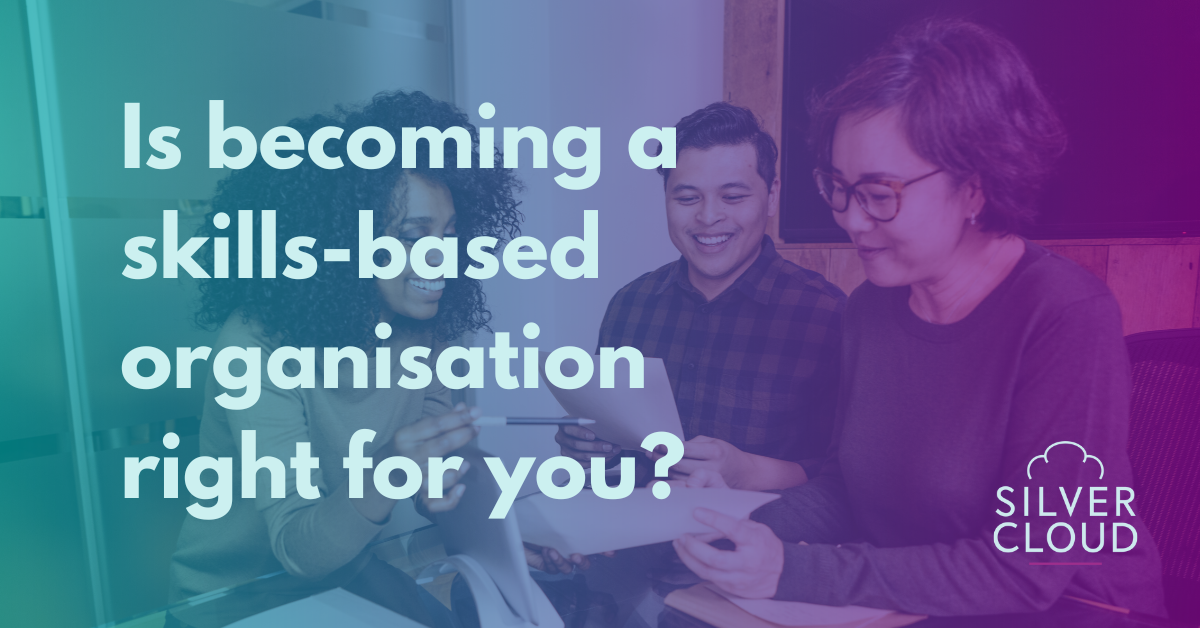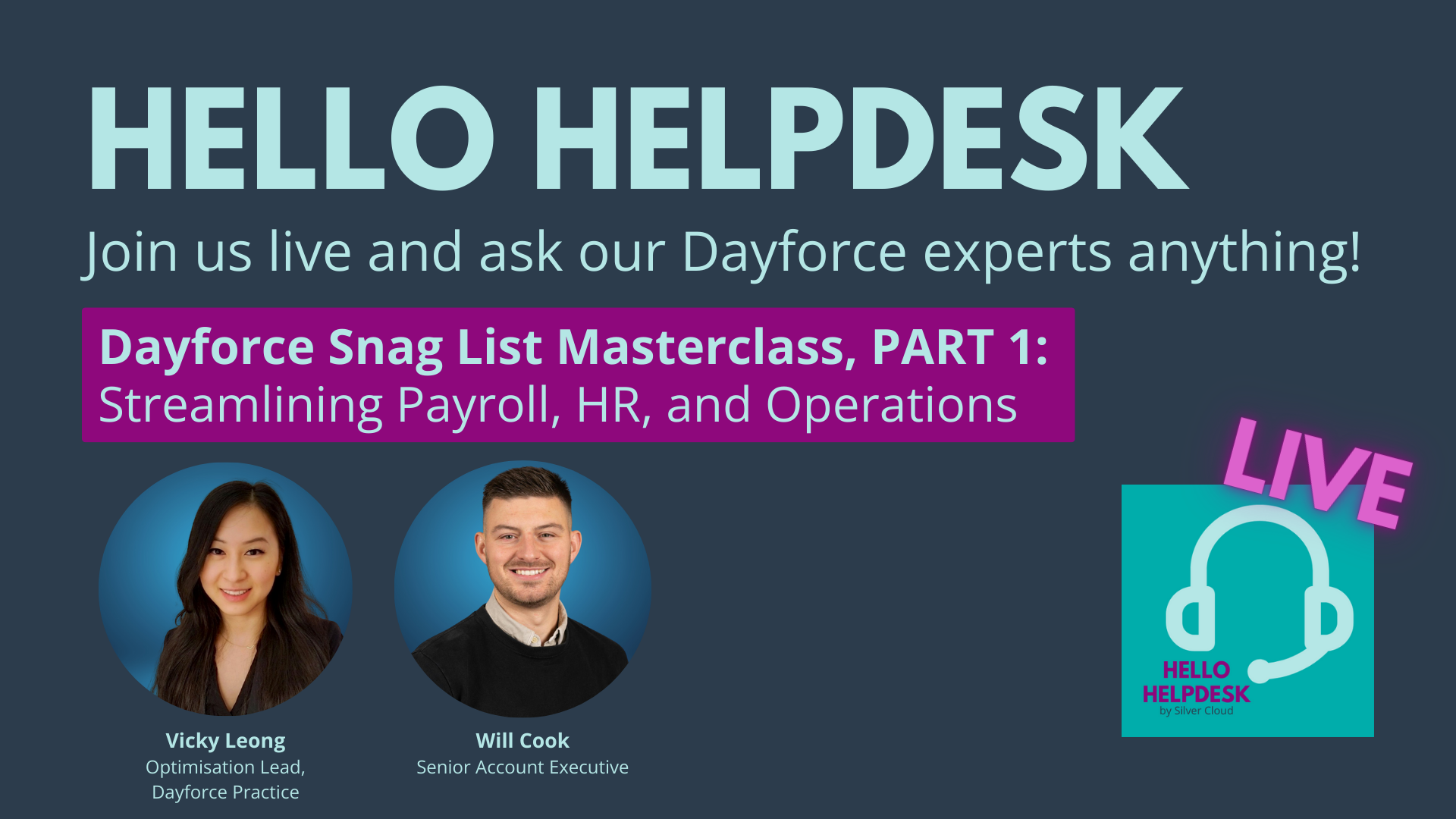Flexibility at work: I don’t think it means what you think it means
by SJ Hood

Flexible working is in the news lately because of the new UK law that makes filing a flexible working request a Day One right for any UK employee. Although this doesn’t mean that all employees have the right to actually receive flexible working, it is a good sign that the times are changing and flexibility is in demand. In fact, flexibility at work that excels into the realm of personalised employee experiences can become a major point of differentiation for an employer brand. But do you really know what flexible working now means in the modern workplace?

Flexibility is one of those words that’s getting a lot of time in the spotlight right now, but it means so much more than being able to work from home one day a week or schedule a gym sesh in the middle of the day. True flexibility at work makes way for a customised employee experience that is both appealing and fair. So, if flexibility goes beyond stretching your working hours around life, what else does it really entail?
Learn more: Beyond flexibility – creating personalised employee experiences [Webinar]
Of course, flexible hours still count
We’re not telling you to rewrite your concept of flexibility, but, instead, to expand it. So having flexibility in your work schedule is still very much part of what makes flexible working. Usually, flexible hours are called Flexi Time (or similar) and allow employees to shift or flex their working hours around a set of pre-determined ‘core hours’ that enable internal business continuity.
Location flexibility
More recent in the world of flexibility, the pandemic vastly changed the accessibility of location-based flexibility. While some businesses have backed away from the necessity of virtual workplaces, many more have embraced them in terms of hybrid and Work From Anywhere models.
This kind of flexibility, particularly when paired with flexible hours, has opened the doors to marginalised groups who previously had limited access to full-time working options. This combo is a great asset to companies who are focused on creating a diverse environment.
Device Flexibility
Bring Your Own Device (BYOD) schemes are another type of flexibility that has increased in recent years. BYOD allows employees to use their personal devices and (in some cases) the software of their choosing. This can give your team a greater sense of autonomy and self-reports show that employees are more productive when they can use their own devices.
Enabling this particular type of flexibility is highly dependent on the cybersecurity protocols your organisation has in place. So be sure to consult your IT leaders before considering this sort of benefit.
Flexibility in pay schedule
A relatively unknown and underutilised type of flexibility, especially here in the UK, flexible pay schedules create a distinct sense of autonomy and transparency for your employees. Earned Wage Access (EWA) empowers employees to choose the pay schedule that works best for them. This can increase financial well-being and resilience by giving employees the ability to flex their pay around the times they need it most – whether that involves an ongoing change of schedule or one off adjustments.
EWA can be a powerful tool to create greater flexibility in your workplace and is a perfect example of offering a personalised approach to employee experience. It can be run by advanced payroll platforms like PayCaptain, which have the capabilities you need to run a program like this effectively.
Learn more: Earned Wage Access – We Compare the Top EWA Providers
Benefits package flexibility
Typically, a company will offer all of their employees the same suite of benefits and perks. This is the way it’s always been done and has, for some time, worked reasonably effectively. However, the opportunities for personalisation that come with the abundance of data we now have about our employees suggest that we try a new approach.
In 2019, TriNet, an HR services provider, released a study that showed ‘91% of respondents at small and medium size businesses (SMBs) view non-traditional benefits as an important aspect of their job satisfaction.’ And the non-traditional benefits that people want are increasingly ones that fit their lives. Some of these benefits might be things like:
- Financial well-being programmes
- Robust mental health support
- Family planning and fertility support
- Subsidised pet insurance
- Wellness and fitness programmes
To offer these effectively, you’ll need to be able to access the wide array of employee data that is available these days. This is most effectively done by using a powerful HR platform that can help you with reporting and identifying trends.
Tailored accommodations
Having strong accommodation policies that make sure every member of your team can start on an equal footing is important. But, if they’re too rigid, these policies could be doing you a disservice. As knowledge and understanding of disabilities grow alongside the omnipresence of the internet, the accommodation policies you had even five years ago are likely to need some adjustment.
Areas like neurodivergence (including ADHD, autism, dyslexia and more) have developed communities that can better share ways to navigate the world successfully. This means that your neurodivergent employees may now have specific ideas of how they’d like to be accommodated to put their best foot forward.
Meanwhile, understanding of physical disabilities and how they can impact working life has also grown. Whether it’s reduced mobility, chronic pain or living with blindness or deafness, the options for the accommodations a person can seek have grown significantly. And these changes are likely to grow more in the coming years.
For these reasons, making sure your accommodation policies are both robust and flexible is a critical step in the employee experience.
The four-day work week
According to proponents of the four-day work week, making a transition to this working model is important because the existing ‘9-5, 5-day work week’ is ‘outdated’ and ‘no longer fit for purpose.’ Whether or not you agree, the case for change remains strong. After the world’s largest trial of the 4-day work week, most UK businesses that took part have decided to make the change permanent.
81% of CEOs and project managers polled about the success of this model shared that it had increased employee well-being. Giving employees that extra day to attend to important things like rest, leisure and ‘life admin’ can help prevent burnout, reduce the use of sick days and create more opportunities all while, largely, maintaining productivity.
Some businesses have taken the results of this pilot and adjusted the policy to something that better suits their business. For example, businesses like Otta, the startup job platform, and CharlieHR, a UK-based HR platform, have implemented the 9-day fortnight. This is a great step for businesses that are 4-day-week-curious but aren’t sure they can commit to that. Usually this involves a cycle of a 5-day week followed by a 4-day week. However, some businesses commit, instead to 4 ½ day working weeks, usually shortening Friday hours.
Personalised performance reviews
Crafting personalised performance reviews can be a great way to tailor employees’ experiences. HRIS software like Factorial offers the ability to create customisable appraisal questions for each individual, allowing you to collect more insightful and actionable feedback.
With options to choose from templated questions or craft your own, you can ensure that each review resonates on a personal level. Personalised reviews help to give employees better autonomy and increase their engagement, which results in higher performance and fosters a culture of growth.
Managing flexibility
Offering flexibility to employees can enhance work-life balance and boost morale – important factors for increasing productivity and job satisfaction. However, with more options available and different employees working on different terms, managing it can become a struggle.
To do this well, you need to have the right system in place. We work with companies across the whole market and can help you find the best fit for your needs. For example, Factorial, an all-in-one HR software that’s designed to work for all kinds of companies and working models. It has tools to correctly track employee hours, performance, generate progress reports, track KPIs, securely store employee documents on an online database, and more. All of which make managing remote and flexible workplaces easy.
All this to say, ‘flexible working’ means more now than it ever has. As we reexamine what role work plays in our lives, flexibility and autonomy, the hallmarks of personalisation, strongly influence our well-being. Encompassing everything from when and where employees work to how they get paid, the modern workplace has to go beyond flexibility and begin creating truly personalised employee experiences. This is the real future of work.
Want to know more? Join our webinar Beyond Flexibility: Creating Personalised Employee Experiences on April 30th at 11 am GMT.



